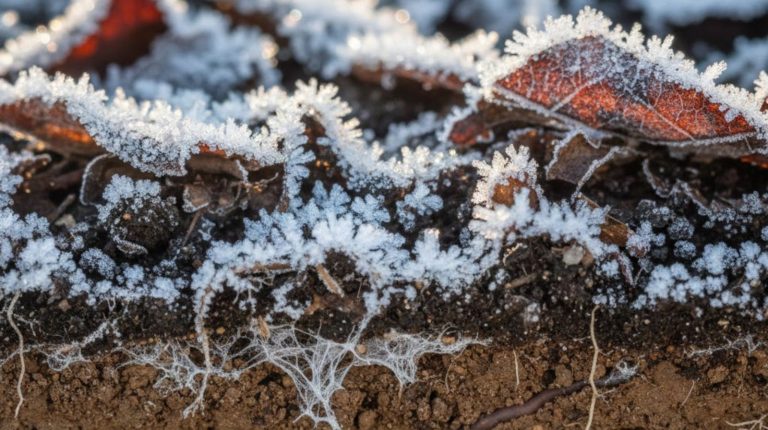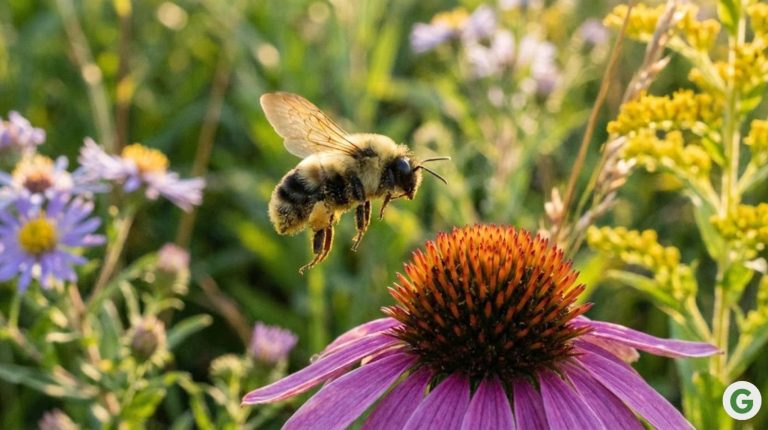Have you ever wondered if composting can really make a difference in enriching your soil? Well, we’re here to tell you that it absolutely can! In this beginner’s guide to composting, we will explore the fascinating world of composting together and uncover the secrets to transforming kitchen scraps and yard waste into nutrient-rich soil.
Whether you’re a gardening enthusiast or simply looking to make a positive impact on the environment, this guide is for you. Join us as we delve into the essential ingredients, different methods, and troubleshooting tips for successful composting.
Get ready to belong to a community of eco-conscious individuals who are passionate about nurturing their soil and making a difference.
Let’s get started!
Why Composting Matters
Composting significantly improves soil health and fertility, making it an essential practice for gardeners and farmers alike. The benefits of composting are numerous and impactful.
Firstly, composting enriches the soil by adding organic matter, which enhances its structure, water-holding capacity, and nutrient content. This leads to healthier plants with stronger root systems and increased resistance to pests and diseases.
Additionally, composting reduces the need for chemical fertilizers, pesticides, and herbicides, thus minimizing the environmental impact associated with their production and use. By diverting organic waste from landfills, composting also reduces methane emissions, a potent greenhouse gas.
Moreover, composting promotes biodiversity by supporting beneficial organisms like earthworms and beneficial bacteria, which further improve soil health.
Getting Started With Composting
To begin our journey into composting, let’s explore the basic steps and materials needed to get started. Composting is a simple and effective way to recycle organic waste and create nutrient-rich soil for your garden or plants.
If you have limited space, don’t worry! Composting can be done in small spaces using composting containers. These containers come in various sizes and designs, such as compost bins or tumblers, which help contain the compost and speed up the decomposition process. They’re also designed to fit in small outdoor areas or even on balconies.
These containers provide the necessary conditions for bacteria and other decomposers to break down the organic matter into compost.
Essential Ingredients for Successful Composting
Now that we’ve explored the basic steps and materials needed to get started with composting, let’s delve into the essential ingredients that are crucial for successful composting.
To create nutrient-rich compost, you’ll need the following:
- Organic matter: This includes kitchen scraps, yard waste, and plant materials. Composting with kitchen scraps not only reduces waste but also helps enrich the soil.
- Carbon-rich materials: Examples include dried leaves, straw, and shredded paper. These materials provide a good balance to the nitrogen-rich kitchen scraps.
- Water: Adequate moisture is necessary for the composting process. Aim for a moist but not soggy consistency.
- Oxygen: Turning the compost regularly helps aerate it, allowing beneficial microbes to thrive.
- Microorganisms: These microscopic organisms break down the organic matter and convert it into compost.
Different Composting Methods Explained
After exploring the essential ingredients for successful composting, let’s now delve into the different methods of composting.
One popular method is aerobic composting, which involves providing oxygen to the compost pile. This can be achieved by turning the pile regularly or using a compost tumbler. Aerobic composting is efficient and helps break down organic matter quickly.
Another method is vermicomposting, which utilizes worms to decompose organic waste. Worms, such as red wigglers, consume the organic matter and produce nutrient-rich castings. Vermicomposting is ideal for those with limited outdoor space or who want to compost indoors. It’s important to create a suitable environment for the worms, providing them with bedding material and proper moisture levels.
Both aerobic composting and vermicomposting are effective methods of composting. The choice of method depends on individual preferences, available space, and the amount of organic waste generated. Whichever method is chosen, proper maintenance and monitoring are essential for successful composting.
Troubleshooting Common Composting Issues
As composters, we may encounter common issues that can arise during the composting process. Here are some troubleshooting tips to help you overcome these challenges:
- Compost Odor: If your compost pile starts to emit a foul smell, it’s likely due to an imbalance in the carbon-to-nitrogen ratio. Add more brown materials like dry leaves or shredded paper to correct the balance and eliminate the odor.
- Composting Pests: Unwanted pests can be attracted to your compost pile, such as flies, rodents, or ants. To deter them, make sure to bury food scraps under a layer of brown materials, keep the pile moist but not wet, and avoid adding dairy or meat products.
- Too Wet or Too Dry: If your compost pile is too wet and slimy, add more dry materials and turn the pile regularly to improve aeration. On the other hand, if it’s too dry, sprinkle some water and mix well to restore the moisture.
- Slow Decomposition: If your compost is taking longer than usual to decompose, it might be due to insufficient aeration or lack of nitrogen. Ensure you turn the pile regularly and add nitrogen-rich materials like grass clippings or kitchen scraps.
- Weed Seeds and Disease: If your compost contains weed seeds or disease, it might be due to insufficient heat in the pile. Increase the pile’s size and turn it regularly to generate enough heat for proper decomposition.
Conclusion
Composting isn’t just about enriching soil; it’s about creating a symbiotic relationship with nature. Just like how a symphony orchestra plays harmoniously, composting brings together different elements to create a masterpiece.
It transforms kitchen scraps and yard waste into nutrient-rich soil, reducing waste and nourishing our plants. So, let’s join this ecological symphony and start composting today, for a greener and more sustainable future.
Together, we can make a meaningful impact on our environment and cultivate a thriving garden.




